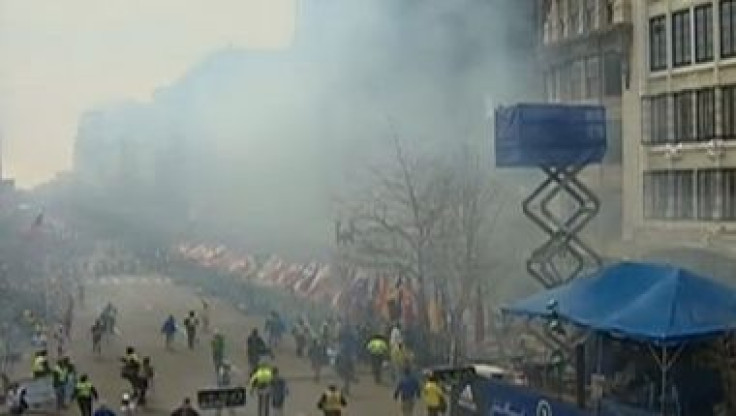Boston Marathon Bombing: A Timeline Of Terrorist Attacks On US Targets Since 9/11

It is unclear if the bombings at the Boston Marathon on Monday constituted a terrorist attack or not. President Barack Obama did not use that term in a brief statement he made from the White House on Monday evening, but some time later, around 7 p.m., a White House official said the federal government was treating the explosions as an act of terror.
If this is indeed the work of terrorists, whether domestic or foreign, it would represent the first such attack on U.S. soil since the atrocities of Sept. 11 more than 11 years ago, except for the Fort Hood massacre of November 2009.
Maj. Nidal Hasan, a U.S. Army psychiatrist who is a Muslim and an Arab-American of Palestinian origin, opened fire on his fellow soldiers at the Texas base, killing 13. But that attack was confined to a military base, and was not an action directed at civilians with the precise intent of terrorizing the population.
However, there have been at least two other al-Qaeda linked attacks on American air carriers headed for the U.S. since that date.
On Dec. 22, 2001, only three months after the 9/11 attacks, Richard Reid, a British national, tried to detonate explosives in his shoe as he flew on an American Airlines Flight 63 from Paris to Miami. The so-called "shoe bomber" was overpowered by passengers and crew before he could set the explosives off.
Upon an unscheduled landing at Logan Airport in Boston, Reid was quickly arrested.
It was later revealed that Reid was part of a conspiracy to bomb at least two airliners bound for the U.S. He was sentenced to life in prison.
Five years later, an al Qaeda conspirator named Zacarias Moussaoui testified in court that Reid had been a co-conspirator in the 9/11 attacks.
On Christmas Day on 2009, a young Nigerian named Umar Farouk Abdulmutallab was arrested for trying to bomb Northwest Airlines Flight 253 en route from Amsterdam to Detroit.
Abdulmutallab, then 23, tried to detonate plastic explosives in his underwear, resulting in the moniker "the underwear bomber."
He claimed that he was trained by al-Qaeda in Yemen. While that assertion was initially debunked by British intelligence officials and others, al-Qaeda in the Arab Peninsula took responsibility for the attack. Abdulmutallab is now serving life in prison.
On May 1, 2010, a potential terrorist attack in Times Square in New York City by a Pakistani-born U.S. citizen named Faizal Shazad was foiled when street vendors noticed smoke emanating from his vehicle, a car bomb.
Arrested later while trying to board an Emirates Airline flight to Dubai, Shahzad claimed he was trained at a terrorist camp in Pakistan.
Shahzad’s plot was reportedly linked to the Pakistani Taliban, not al Qaeda. He is now serving life in prison.
Since 9/11, at least four attacks on U.S. consulates in foreign countries by al-Qaeda (or groups linked to al-Qaeda) have been reported. The most recent such incident occurred in Benghazi, Libya on Sept., 11, 2012, killing four people, including U.S. Ambassador Christopher Stevens.
© Copyright IBTimes 2024. All rights reserved.











